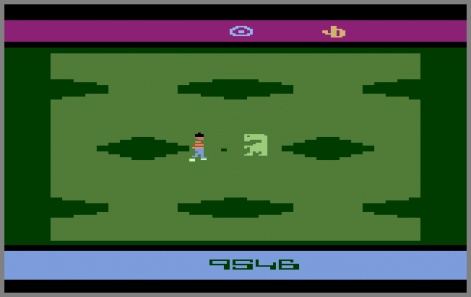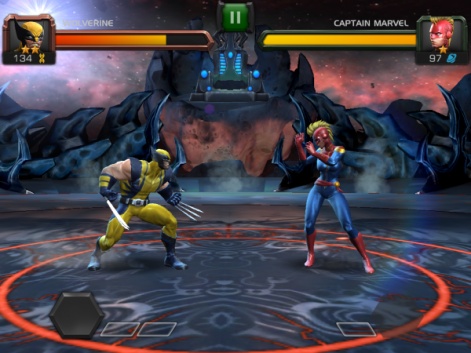Movie licenses have played a role in gaming for almost as long as the medium has existed.
And for years, this made a lot of sense. Boxed products would be released to capitalise on the hype surrounding movies in the cinema and developers would be able to craft an interactive experience that loosely mirrored the film's plot.
But in the world of free-to-play mobile, that role has shifted slightly.
With traditional plotting out the window, working with a movie IP on mobile means converting that two-hour blockbuster into an ongoing live game that keeps players interested for months, if not years.
The challenge has not dampened the enthusiasm for such still potentially lucrative deals. Just in recent weeks, Spil Games has signed Valerian, Ludia's got Underworld and Mediatonic has snapped up Fantastic Beasts.
Koukoi Games, meanwhile, has raised $1 million to develop a game based on an as-yet unnamed Hollywood production.
So we asked our Mobile Mavens:
- Why do you think movie licenses are becoming increasingly popular in mobile gaming?
- How can the short shelf-life of a movie and the long-term requirements of F2P success be reconciled?

John is co-founder of PR and marketing company Big Ideas Machine. Also an all-round nice guy...
Movie licenses have always been really popular in mobile.
Back as far as 2001 movie licenses were being bought for huge sums. The Riot-E deal for the Lord of the Rings films is just one great example of how mobile studios have seen the potential in movie tie-ins.
(Obviously the Riot-E deal was famously terrible. I just realised not everyone on this thread is as old as me or would spot the sarcasm.)

Jean-Philippe has 5 years' experience building startups and advertising mobile games globally. He has a strong entrepreneurial mindset and highly developed expertise in sales strategy, team management, user acquisition, game design, user engagement and monetization.
Jean-Philippe started his career working for the mobile game publisher Chugulu where he was in charge of designing and marketing free to play titles. He contributed to the success of the award winning e-commerce platform lazada.ph while working for Rocket Internet as Global Venture Director in the Philippines. After Rocket Internet, Jean-Philippe joined HitFox as Head of Business Development for mobile games marketing ventures GameFinder and AppLift. He helped grow and develop both companies internationally as Chief Revenue Officer.
I believe it can be quite successful especially when the license is also a well-known IP.
Ludia did really well with Jurassic Park, and Vivid Games did also great with Rocky.

Oscar Clark has been a pioneer in online, mobile, and console social games services since 1998. He is also author of the book, Games As A Service – How Free To Play Design Can Make Better Games.
Don't worry John, I'm (at least) as old as you! I remember when Lord Of The Rings Bowling was pitched to me.
Sadly, I wasn't the one to publicly say that it was "crap" - someone at Vodafone who beat me to it. I forget who, but think it was Graham Ferguson.
Isn't this also what THQ was built on (and killed by)?
Movie licenses are no replacement for having a good game.Oscar Clark
I also remember how depressed Kristian Segerstrale was over the Transformers game which Glu were responsible for back in the Java days.
Movie licenses can be great vehicles to propel a game into the mainstream, but it's no replacement for having a good game.
In fact, more often than not the costs of the licence actively prohibit that being the case.
You don't have enough left in the coffers to deliver the best experience and, at the same time, you have to adhere to the specific restrictions placed by the licensing company - some of which can really screw up your thinking.
I remember when they first talked about bringing Pottermore to Playstation Home and finding out we couldn't replicate what had been done in previous games, so no Quidditch... but we could make a Quidditch Manager!
In general, film tie-ins work best when the game production is valued over the IP owner as a medium in itself. Too often games are seen as secondary projects, marketing vehicles or just ways to raise fast cash through the licence.
In my case we are making a game based not on a film, but an original stage show which inspired a movie - so I think that's close enough.
The Rocky Horror Show (not the other Rocky!) has been around since 1973 and is highly loved by its fans. And we are fans!

As a result, the work is not just an homage to that original IP but our attempts to re-imagine it in the form of gameplay.
We aren't even trying to build a new version of the original game (an adventure game), and instead we are trying to tap into what makes the cult experience work.
It requires a lot of attention to detail, a lot of passion and the ability to understand the sources which inspired the original IP - not just the IP itself.
Will it work? We are still in development so you'll just have to shiver with anticipation...
Movie IPs give user acquisition leverage - cheaper CPI, better featuring and word of mouth, cross-promotion - and remove some of the challenges associated with creating a brand new IP.
They are also a relatively easy way to fast-follow and broaden the reach of another hit game or genre.
Ideally, you'd want to create a game based on an ongoing movie franchise, or a reboot.Nicolas Godement-Berline
As UA and dev costs rise amidst intense competition, creating a mobile game becomes an ever riskier proposition. So it's no surprise that IPs are making a comeback.
I fully agree with Oscar that a movie IP work best when the game is seen as a medium in itself rather than just a simple street date tie-in.
As IP deals can be long to negotiate, a straight-up movie tie-in oftens ends up in a situation where development started too late but the release date can't be pushed back if you're going to have to hit a same-day release.
Consequently, the quality of the game suffers from a shorter development budget and schedule.
Also, since a successful F2P game is likely to have a long shelf-life, it's better to ground its success in deep-rooted attachment to a franchise rather than a temporary burst of awareness.
Now, if you really are going to make a same day release movie tie-in, trying to fit too closely to the movie's storyline is usually a recipe for disaster.
This is often true of action games on consoles and is even truer on mobile. Capturing the essence of what the IP is about and building a great game within that scope remains the better approach in my opinion.
Ideally, you'd want to create a game based on an ongoing movie franchise, or a reboot.
This way, the IP stays current for several years and each movie release gives a nice burst in awareness contributing to expanding the fanbase.
From that perspective, Underworld seems like a clever move while Fantastic Beasts and Valerian carry more long-term risk. That said, I'm a big fan of both Valerian and Harry Potter so there's hope there too.
At the dawn of the app stores, you needed a great game. Shortly thereafter, you needed a great game and smart marketing.
Publishers more-or-less expect third-party studios to come to the table with their own, known IP.Scott Foe
As "best practices" emerged and the industry began to consolidate, capital for user acquisition was all-but-required to launch new intellectual property.
Developing with known intellectual property, once viewed as a way to short-circuit that need for intense capital commitment to user acquisition, is becoming a hard publishing requirement - though, historically, the market results for mobile games sporting known intellectual properties have varied.
In present talks with mobile publishers, I get the feeling that publishers more-or-less expect third-party studios to come to the table with their own, known IP - to either license known IP or to adopt publisher-owned IP.
I have heard something to the tune, "you now need IP and UA," from several publishing sources. The launch of a new intellectual property is more and more coming to be viewed as a dead monkey.
I remember the first game movie license deal (I saw at Activision) to hit $200k in fees, that being Days Of Thunder in 1988.
Of course I also remember Howard The Duck, ET and Johnny Mnemonic (which I labeled 'Johnny McMissing' since Keanu wasn't part of the deal).

I'll be contrary and say with mobile content, movie licenses are even more important than they would be with triple-A titles.
Case in point, nine out of 10 of the top iMessage grossing apps/stickers are Disney and other movie properties.
Discovery on mobile is so poor and acquisition ads so very bad in terms of ROI, movie licenses can only be a good thing.
It really seems movie games are no longer guaranteed stinkers!
We have seen our share of really bad movie/television-based videos games, and they just kept coming through the years.
But gaming technology started evolving and games that felt like movies with better stories started coming out.
Mobile is designed from the start to be shared, everywhere, and has ubiquitous influence.Jared Steffes
I remember my first play of Left 4 Dead. There I was playing a game with my wife and two friends over the internet that felt like we were in a zombie survival movie.
Experiencing it with someone else really increases the joy factor because movies/television are shared, social experiences.
Mobile is designed from the start to be shared, everywhere, and has ubiquitous influence!
The games no longer need to tie-in the exact characters or core story of the IP. They can move into new areas that would allow more game mechanics to function with the devices.
I remember playing Wayne's World for my SNES and wondering why I was jumping around shooting things from a guitar. It didn't make sense!
Now a talented team could make you part of the Wayne's World universe as you help Garth find his dream girl and help Wayne afford his new guitar without breaking the bubble of their film adapted life.
The Walking Dead is a prime example of creating a universe.
The first movie IP since Android/iOS that I played all the way through was Army of Darkness by Backflip Studios. It was super fun!
It had just enough influence from the IP along with interesting mobile mechanics to make me play it until I was out of content. It's nice to be able to complete a mobile game nowadays!
As mentioned above: the CPI is lower due to organic searches of the IP, people expect a movie to have tie-in products, and people will spend money to acquire them.
I've worked on a couple of movie and TV games in the past. They require an out of the box approach and hand holding with the producers/writers of the IP.
It is a lot of fun to branch out of the world other people have created to provide interactive content for a world that many people may cherish. It just requires the devs to put on the fan's shoes for the entire process.

A games programmer before joining Sony’s early PlayStation team in 1994, he then founded developer Pure Entertainment, which IPO’d and launched a free-to-play online gaming service way back in 1999.
He was also a director of pioneering motion gaming startup In2Games, which was sold to a US group in 2008.
Along the way, he’s been a corporate VP, troubleshooter, and non-exec to a variety of companies and investors in and around the games sector.
Harry was European CEO of Marvelous AQL, a Japanese developer and publisher of social, mobile and console games, known for console games like No More Heroes and Harvest Moon, but now highly successful in the free-to-play mobile and web space in Japan and Asia.
Harry is CEO of Magicave.
I agree that IP licenses are potentially a great way to drive installs and reduce UA costs. But that has to be weighed against the fact that you'll be paying a not inconsiderable royalty to the IP holder.
F2P game economics boil down to margin - ie how much more per user are you making than that user costs to acquire?
You'll be paying a not inconsiderable royalty to the IP holder.Harry Holmwood
A sensible way for companies to work with someone else's IP is to take an existing game system/tech platform that gives some level of comfort in terms of keeping a handle on development costs, and understanding how well that game should retain and monetise players.
Then, you can give a reasonable estimate as to how that game, with a great IP on top, can deliver a return on investment for all parties.
Being too 'out of the box' with a game design would be risky with F2P and someone else's IP - how do you know how much you can afford to pay in royalties/advances if you don't know how well your game will monetise?
That's why quite a few of the successful games using third party IP are based pretty solidly on mechanics seen elsewhere.
Genera's Frozen Free Fall being a great example of taking Candy Crush-type mechanics and applying a great brand, enjoying huge success as a result.
Pokemon GO also shows how an existing game (Ingress), which has been under the radar, can become phenomenally successful when combined with a brand everyone loves.
Movie licenses, as has already been touched upon, bring a new level of difficulty.
In the console business, 'day and date' releases were always desirable and, with the right team and limited scope, often achievable. Big numbers would be sold due to the IP.
With free-to-play, though, getting a huge number of users day one can be a disaster - that game might need months in soft launch before it's retaining and monetising well.
I'd imagine it's unlikely a movie studio will let you soft launch with their brand before they launch their movie so, as Nicolas says, it feels more sensible to focus on a more evergreen franchise (Harry Potter being a great example) than the next big action movie.
The relationship between movie IPs, installs, and CPI has already been pointed out several times in this thread, so I won't belabour those points.
Multiple movie releases have great synergy with live operations.Devin Nambiar
Other than to say that in order to achieve good ROI on a movie IP title, developers need to have a good sense for how much CPIs will decrease with the influx of organic installs, and how the structure of the IP deal - specifically the revenue share - ties into this.
In terms of reconciling the short shelf life of a movie with the longer product lifecycle demands of a F2P game, a great way to solve this is by going after IP deals with franchises, as opposed to just movies or flash-in-the-pan IPs.
We did this quite well at my previous company Kabam, with The Hobbit and Marvel: Contest of Champions being two great examples.

Not only were we able to rely on multiple movies to drive installs and hype, increasing the shelf life of the game, but we were also able to sync major feature releases with movie releases, bringing new content into the game for existing users and often getting App Store featuring because of it.
This, coupled with a movie release drove even more installs.
Multiple movie releases with franchise IPs also has great synergy with live operations and by combining these things with good product marketing, you can create a hype cycle that drives both acquisition and monetisation into the stratosphere.

As several of the anciently old Mavens have already pointed out, movie IPs have been around for almost as long as computer games have.
Associating your game with any IP that people know, makes it easier to get your game noticed.Thomas Nielsen
Really, in my mind, nothing new has happened with mobile: associating your game with any IP that people know, makes it easier to get your game noticed.
You could argue that mobile has broken new ground in terms of IP with the Kardashians, PewDiePies and the Pen Pineapples of the world.
But really those are, like movies, IPs that already have a certain amount of exposure - helpful for you to break through all of the noise.
If anything, I think movie IPs/tie-ins are going to be fewer, just because movies no longer represent the ultimate product when it comes to global interest and awareness.
As eyeballs have turned to YouTube, NetFlix and HBO, new IPs surface that get tremendous exposure - something that generates a lot of new potential even for the smaller, entrepreneurial, agile players in the space.

John is co-founder of PR and marketing company Big Ideas Machine. Also an all-round nice guy...
I think Thomas makes the obvious point that the right license has always been good business, regardless of whether it's a movie or not.
Personally, I've not noticed an uptick in movie IP on mobile recently - movie licensing has been around forever in the games industry (ET on the Atari, anyone?) and mobile is no different.
If anything, I think that the concept of what is a licensable IP has become far more blurred - with games like Angry Birds turning into a movie rather than the other way around.
And the concept of mega-celebrities licensing their own notoriety is inevitable when someone's personal brand and audience are a monetisable commodity.
But I still believe the real gems are those games that are original, creative, and not reliant on licensed IP - those are the games that I'm excited to play.
I am probably reiterating on what have been said, but maybe I am adding a new angle here.
People know who Batman is, which is good motivation.Oleg Pridiuk
I invest so much time trying to look at the modern world, media space, and daily routine through young eyes and the key words I hear often are “too much information”.
My point is, young people have to consume and digest so much new information, that any learning curve is hard, any tutorial is bothersome because there’s a full context to learn, whole new world to figure out.
This is where known IP helps - teens and young adults know who Batman is and why he fights The Joker, which already is a good motivation for a click.
Two comments:
- More movie licenses in games is driven by reciprocal interest: screen looking at games and games looking at screen. It’s also (roughly) more of an equal relationship. This is different to the old days, but lack of common understanding and different perspectives of the industries can still pose fundamental challenges in a licence negotiation.
- Watch out for hype: there are as many movie/mobile game tie-ins which have been quietly dropped.





























